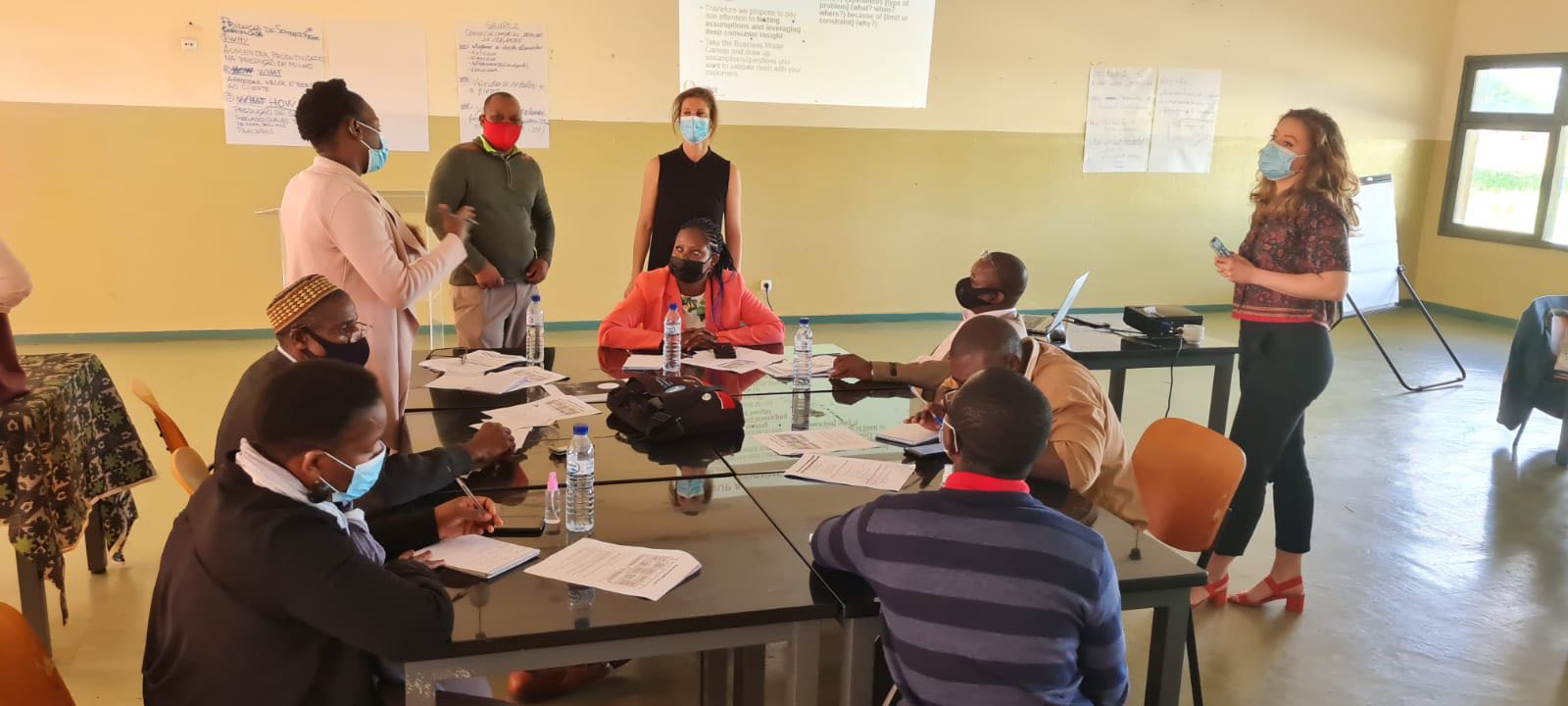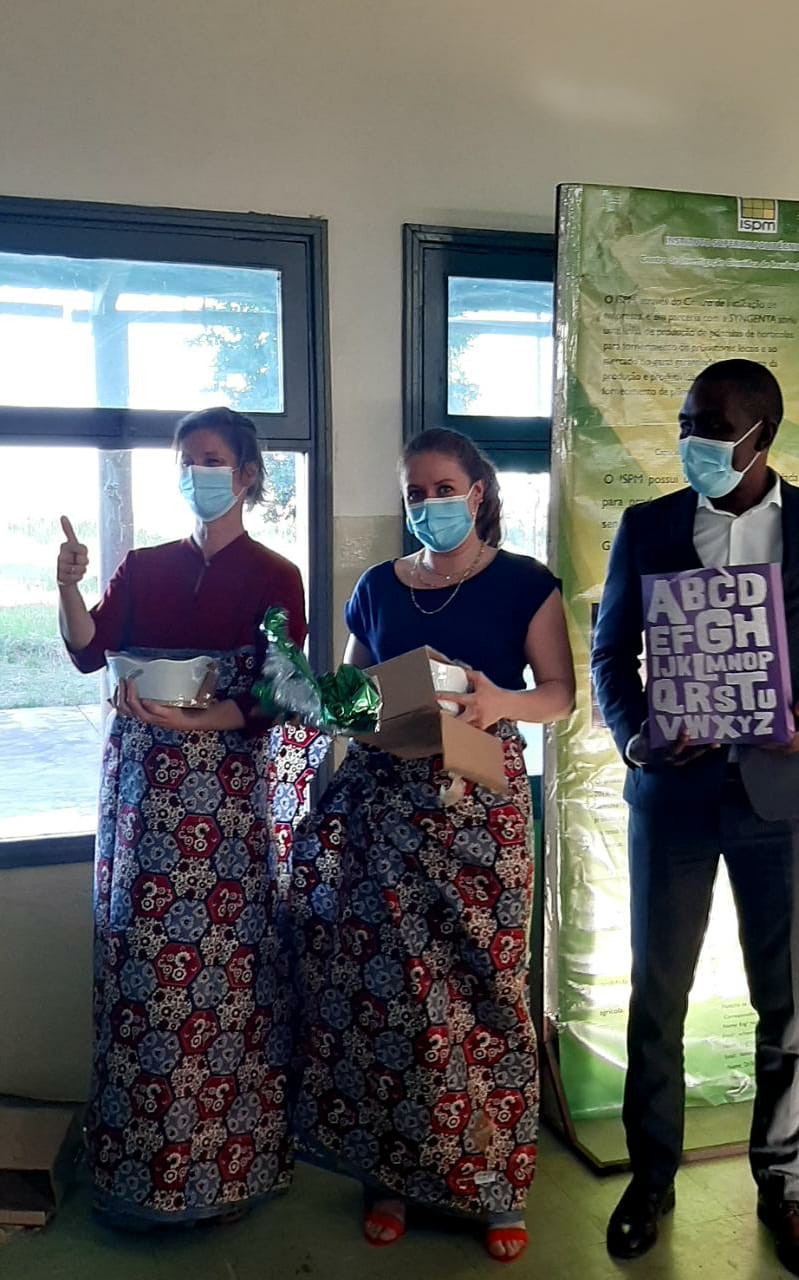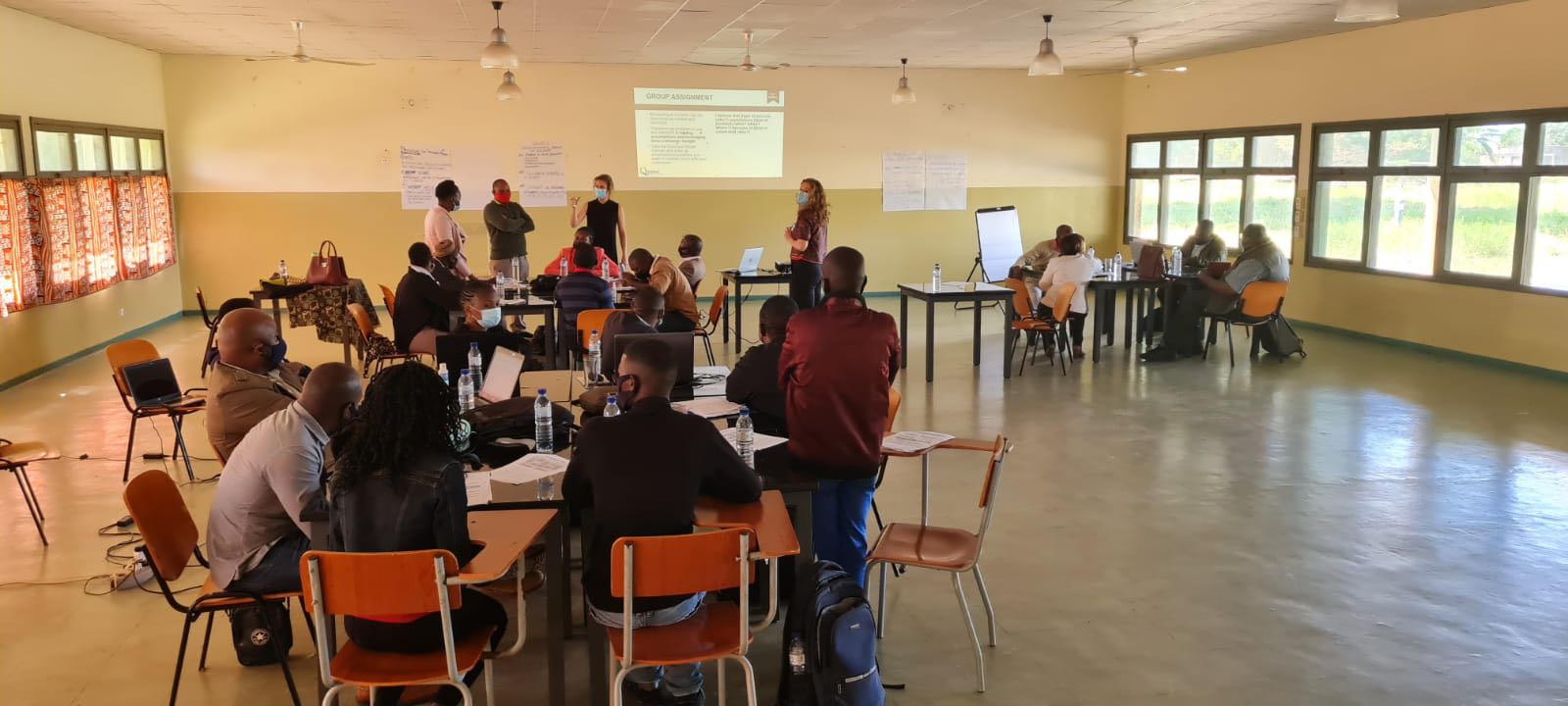Incubation workshop with a gender lens in Mozambique
Incubation workshop with a gender lens in Mozambique
Olivia Ansenk, together with colleague Lisa Rotteveel and local consultant Ivan Amade, conducted a workshop with four business incubation centers in Manica, Mozambique1. All four institutions experience difficulties in attracting female students, graduates and women from the community for incubation and start-up support. This workshop provides a means to deliberately look into advancing gender equality within the incubation centers and share lessons learned.
Despite higher education institutions being oriented by the Government of Mozambique to address gender inequalities and increase inclusion of women and girls, gender responsiveness has not yet been embedded at education and institutional levels in the country. Currently, just over 30% of students at ISPM (Instituto Superior Politécnico de Manica) is female and there is a very high percentage of dropouts. In addition, female graduates do not always have the same opportunities as male graduates to benefit from their education due to gender biases and stereotypes within the labour market. Disruptions in education due to the COVID-19 pandemic are also creating more and more challenges.
There is a clear need to unlock the potential of women’s small businesses in Mozambique and to profit from gender parity in economic participation. Denying rights and opportunities based on gender, race, religion, disability, among others, is unacceptable. Advancing gender equality is smart economics, sound business practice, and essential development policy.
All four incubation centers are looking for ways to involve students from year one into entrepreneurial projects and personal growth trajectories to help build the entrepreneurial mindset of both female and male students. The workshop was used to strategize together on how we can better work with surrounding communities and female students to understand how gender-specific constraints affect female students’ and entrepreneurs’ decisions and outcomes. Important ways to engage and support more female students and entrepreneurs are to specifically design incubation programmes towards their needs, use appropriate marketing channels and tailored training, and provide mentorship support throughout the education system. An important feature we also looked at was applying lessons from psychology in training programmes to encourage women to act with an entrepreneurial mindset.
So, in addition to learning the business practices of successful entrepreneurs, an entrepreneurial mindset is needed. Emerging evidence from impact evaluations also demonstrates the importance of strengthening socio-emotional skills for female entrepreneurs in Africa (World Bank, 2019). Personal initiative training and training programmes emphasizing self-esteem have proven remarkable positive results.
1 The incubation centers were attached to polytechnical institutes at Instituto Superior Politécnico de Manica (ISPM) and the training was part of the Nuffic Tailor Made Training Orange Knowledge Programme (MOZ TMT ISPM 2000043). This training programme is oriented towards strengthening incubation services for youth and women in Manica, Mozambique, to promote agricultural growth and food security.


The trainers: Olivia Ansenk, Lisa Rotteveel and Ivan Amade

